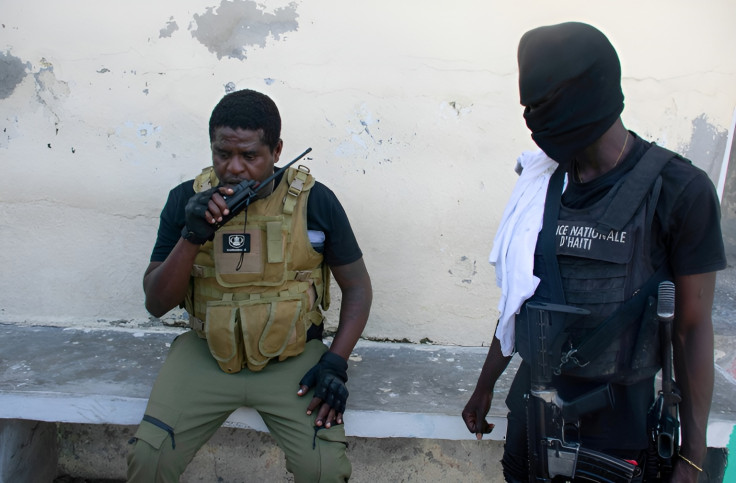
Human rights advocates are urging the Biden administration to increase protective measures for Haitians reaching the U.S. or already living there undocumented, as the Caribbean nation continues its descent into chaos and lawlessness.
Close to 500 human rights organizations sent a letter to the government on Wednesday asking for a moratorium on deportations to Haiti, the immediate release of detained migrants, closure of pending deportation cases and designation of Temporary Protected Status for their nationals, something that would allow more migrants who are in the country stay there.
However, NBC News reported that so far there are no plans to implement any of these measures. The stance, which has generated mixed reactions internally, comes as the Biden administration struggles with the public conversation about migration to the country.
Fiercely criticized by Republicans who say the administration is too lenient on immigration enforcement -and polls showing a majority of Americans believe this to be a salient issue and critical of the way Biden is handling it- the government is considering implementing tougher measures, rather than the other way around.
The outlet noted that the Biden administration has not been sending back apprehended migrants by plane, although mostly because its main airport remains closed amid gang violence. However, it has been doing so with those intercepted by sea, the latest event of the kind taking place on March 14, when 65 nationals were returned.
"Those interdicted at sea are subject to immediate repatriation pursuant to our longstanding policy and procedures," a spokeswoman for the DHS told NBC News. "The United States returns or repatriates migrants interdicted at sea to The Bahamas, Cuba, the Dominican Republic, and Haiti."
As for the lack of policy changes, a NSC spokesperson told the outlet that "if our goal was to bring everyone from around the world whenever there's a crisis, we would have a huge problem."
The administration has not seen a spike in migration so far, according to CBS News. But should that eventually be the case, they added, authorities have a longstanding contingency plan that includes housing migrants at the Guantanamo Bay Naval Base, located in the southeast end Cuba.
However, officials have shown concern about the possibility that figures increase substantially as violence continues to increase in Haiti, leading to the collapse of all basic services and political order. Screening facilities at Guantanamo could be overwhelmed if daily detentions exceed 1,000.
Haiti, in the meantime, formed a transitional council tasked with overseeing a political transition. Following weeks of negotiations, the body issued its first statement this week, vowing to restore "public and democratic order."

"We are determined to alleviate the suffering of the Haitian people, trapped for too long between bad governance, multi-faceted violence and disregard for their perspectives and needs," said the statement from the Presidential Council, which has yet to be officially installed.
Signed by eight of the nine members of the council, it said that -- once in place -- the body will appoint a prime minister who will assist in forming a government to "put Haiti back on the road to democratic legitimacy, stability and dignity."
The country has been rocked by an uptick in clashes since late February when gangs launched a coordinated offensive and demanded Prime Minister Ariel Henry resign.
Henry, who has led Haiti since the 2021 assassination of president Jovenel Moïse, promised more than two weeks ago to step down after a transitional council is stood up -- though reaching that stage has proved exceedingly difficult due to squabbles among party leaders.
The presidential transition council -- to be composed of seven voting members and two non-voting members -- was first announced on March 11, after emergency meetings between Haitian leaders and several countries and organizations, including the Caribbean regional bloc CARICOM.
It is set to draw its members from Haitian political parties, the private sector and elsewhere, and is to name an interim prime minister and government to set the stage for fresh elections.
© 2024 Latin Times. All rights reserved. Do not reproduce without permission.
Latino workers are disproportionately at risk of dying while working, study shows
One in five Latinos doesn't have insurance, and they represent half of the uninsured population in the U.S.
Oklahoma becomes latest state to advance legislation allowing for the removal of undocumented immigrants
Texas billionaire announces deal with Venezuelan state-run company after U.S. sanctions reimposed
